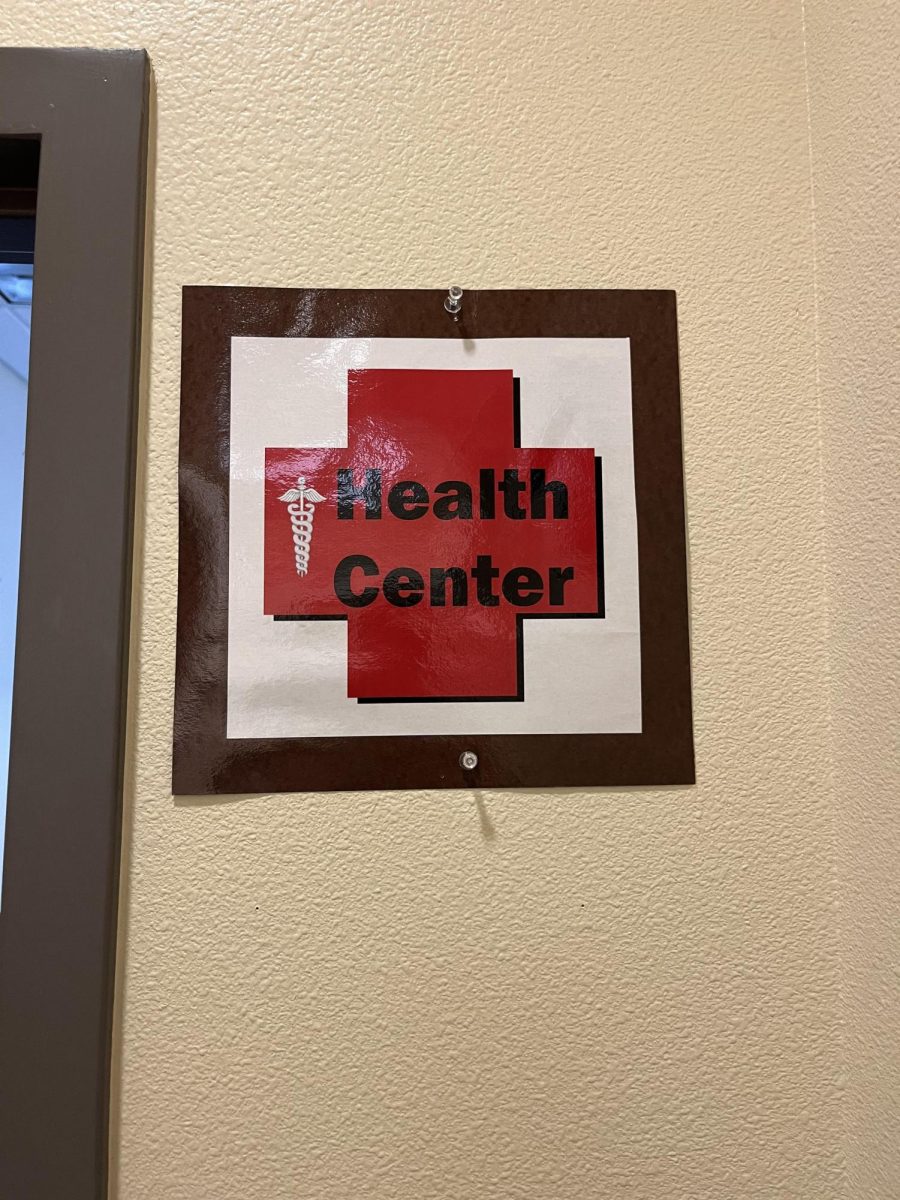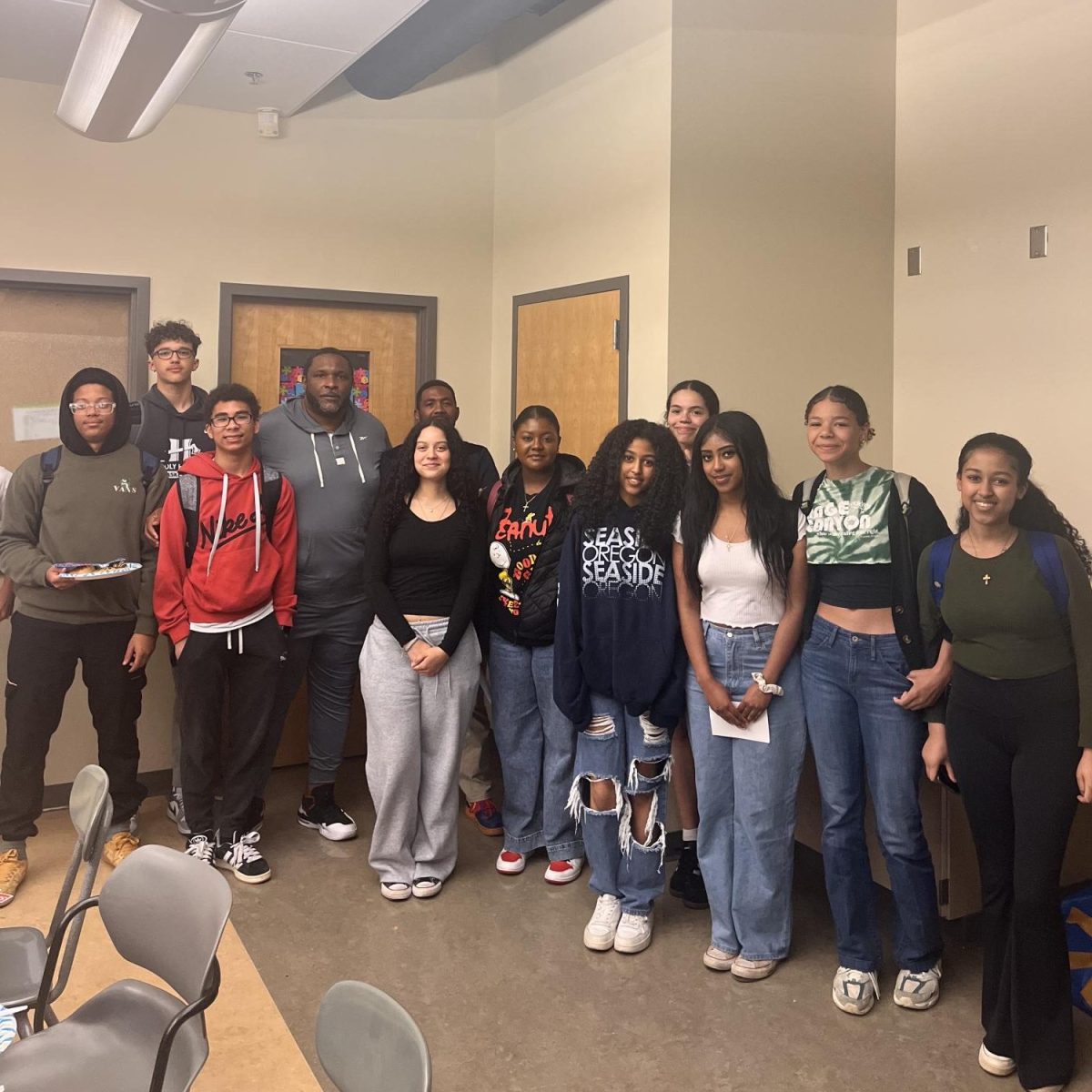(This story was originally published in The Elevator in June, 2023.)
The opportunity to pick up a cap and gown for graduation and be well-dressed for an honorable ceremony, is a highlight that schools, like Oregon City High School, like to emphasize. The idea of earning a piece of paper on graduation day, that states you finished high school is the expectation and norm that has been held for students over the past generations.
However, waking up in the morning, eager to graduate high school, is a feeling that not everyone has or will get to experience in their lifetime.
Martin Armenta, a drop out student at Madison high school, was one of the many students from his 2004 graduating class that did not complete high school.
Armenta, who can still remember the emotions he felt as he saw his graduating class walk the stage, said that regardless of not being able to experience that eagerness, he still felt “very proud of them. If that’s what they wanted to do, then good for them,” he said.
Based on the graduation rate table provided by the Oregonian live, Armenta’s old school, Madison high school, which has been renamed McDaniel High school, had 28 out of 337 seniors not complete high school in 2022. Additionally, Oregon City High School had 27 out of their 474 seniors not complete high school in 2022.
As the Oregon Department of Education combines the various percentages of graduation rates from Oregon school districts, they come to the conclusion that 81.3% of high school students graduate on time statewide. This holds Oregon at a low stance compared to other states in the country.
It’s become such a big issue that these are the numbers that school districts and teachers are not satisfied with and are hoping to improve over the next upcoming years, said some members of Oregon City.
Erika Frafjord, the college and career coordinator at Oregon City High School, shared that it always concerns her when data like this appears because “when students drop out of high school it means it limits your opportunity to earn a living wage job,” she said.
Have dropout rates been a problem in the past?
Kelly Myers, Associate Principal at Oregon City High School, could remember his high school experience quite vividly, he said. Myers, who was not a very good student and would get in all sorts of trouble, due to outside factors in his life, struggled to notice problems with other high school graduates, he said. However, he was sure that high school dropouts were still happening at the time.
Frafjord said that she wasn’t aware of it in high school either, but was sure there were students who didn’t finish high school just “like every school does.” Frafjord then said how back then, it used to not be as “publicized” as it is now.
This is true. Over the past decade, newsrooms from The Oregonian have updated their annual graduation database for any high school in Oregon, making it available to any viewer.
Oregon history with high school graduation rates
Class of 2020 was Oregon’s biggest graduating class, with a graduation rate of 82.6%. Even though these numbers are considered low compared to nationwide averages found on the National Center of Education Statistics, Oregon is finding their way up the ladder year by year.
In an article by Capital Chronicle, Natalie Pete, the author of this article, breaks down one of the most noticeable accomplishments seen in the graduation rates; the increase found in different subgroups of students. The factors identified include socioeconomic status, race, and housing situations. Some of the findings were that Native Hawaiian and Pacific Islander students had a significant increase in graduation rates, from 69.8% in 2021 to reaching 74.6% in 2022. There are other groups that reached their all-time high in graduation rates this year as well, as provided by the Oregon Department of Education.
The Oregon Department of Education emphasized that Oregon has been advocating towards closing disparity gaps over the past 5 years. They also believe this has been the only reason graduation rates have increased over the past years.
What are the benefits of graduating high school and receiving a diploma?
During high school, it’s evident that many students choose to work a minimum wage job while attending school. According to the Operations and Policy Analyst from the Oregon Department of Education, Meg Boyd, high school diplomas have become a significant requirement for jobs with greater benefits. As years go by, the majority of jobs will not just require a “high school diploma, but at least some additional training beyond that,” Boyd said.
Myers also emphasized that the majority of the time, more job opportunities are opened for those who have a high school diploma. The first thing people do when hiring a potential employee is determining whether or not they finished high school. This diploma demonstrates that “that person got up every morning and went to a place that they didn’t necessarily want to go because they knew there was some benefit in doing so in the end,” said Myers. This is the type of resilience Kelly Myers is hoping to see from every student at Oregon City High School.
In a study made from the Bureau of Labor Statistics, it was discovered that in 2019, 44% of individuals over the age of 25 who had not graduated high school were employed. The other 56% were unemployed. Erica Frafjord understands that a “high school diploma right now is the bare minimum” for any job, she said.
Erica also said how it is more likely to live in poverty when you work a minimum wage job. Based on the findings from the Bureau of Labor Statistics, the median weekly earnings for an individual over the age of 25 who didn’t graduate high school is about $606. On the contrary, an individual over the age of 25, who has an advanced degree, can earn up to $1,559 weekly.
In Oregon alone, if you’re currently working a minimum wage job, you will need to work at least 68 hours a week to be able to afford a decent one bedroom rental home. These numbers will vary depending on the location, as seen on the National Low Income Housing Coalition website.
Success without a high school diploma
Kelly Myers did recognize that “there’s exceptions to all of this,” meaning that it will take self discipline and commitment to overcome the barrier held against dropout students, he said.
Armenta is one of these exceptions. He made the decision of dropping out of high school because he had a son to provide for at the age of 17. To him, success looked a bit different than what most people have in mind. Armenta was aiming towards being financially stable, while being able to provide for his family, and having a safe place to stay. That is what success looks like to Armenta, and he has accomplished that.
Armenta has no regrets of dropping out of high school because he claims that the experience he had in the “real life” was a lot more than all the years he spent in school.
Ways families can help
Family support was a critical part in Farfjord’s high school experience. She enjoyed the encouragement that her family always gave her, which pushed her to do her academics, sports and so much more.
This is why Erica strongly believes that family involvement has a huge impact on the decisions high school students make. She advocates for families to check up on their kids and make sure they’re attending classes and passing them. Erica has come to learn that “having family support is a huge reason for kids making it all the way,” she said.
Boyd has very similar beliefs regarding the influence of families on high school students and what they can do to uplift them. For instance, she believes families should “listen to students’ needs and wants,” so they can find the best way to approach and pursue their dreams, she said. After having this conversation with the student, Boyd advises families to discuss any potential barriers that need to be overcome. Boyd also said that families need to stay involved and remove any barriers they can, so the student can achieve their goals.
Will moving barriers for students be the best solution?
At Oregon City High School, their goal is to guide all their students to success and try to care for them at a “whole capacity,” Frafjord said. She also said how there are many different ways to achieve this, but the role that admin and teachers have is key to finishing high school.
While Frafjord had her annual Junior check-ins with all the 11th grade students, she did note that there are a couple of students who don’t have a plan after high school or aren’t close to meeting the 26 credit requirement. When this is the case, she hopes teachers and admin are willing to educate them on all the options available to them, she said. She also included the various options like going into trades, work force, military or even getting a GED.
Another thing she did highlight was that teachers can make adjustments for students if it means the student will remain engaged in school. What this could look like is removing any barriers or wavering certain credits so the students can remain on track towards graduating.
Additionally, teachers need to create an encouraging, educational relationship with all their students because maybe “that teacher is a student’s favorite reason for coming back” and finishing all the way through, Frafjord said.
Myers did explain that he still doesn’t believe that the school has all the resources or services available to “uplift all students yet,” he said. This is why there are certain occasions where students feel as if they are being “pushed out” of school, however, for the most part, these are “students that were missed in the periphery,” Myers said.
High schools are big places, meaning it’s hard to meet with every single student, he added. That being the case, when Myers and the rest of administration don’t get to every student on time, it is not because it was done on purpose, rather the whole opposite, he said.
Bottom line
Graduations are just around the corner, and it’s time to wait and see whether or not our state’s graduation rate will increase or decrease.
Nevertheless, teachers, families and districts are all striving to find a solution to decrease the number of high school dropouts. If you are at risk of dropping out, but want to walk the stage, contact your counselor or teachers, they are there to help. However, there is only so much a teacher, or parent can do, so remember, if “you don’t show up to class, it’s hard to pass the class,” Frafjord said.







